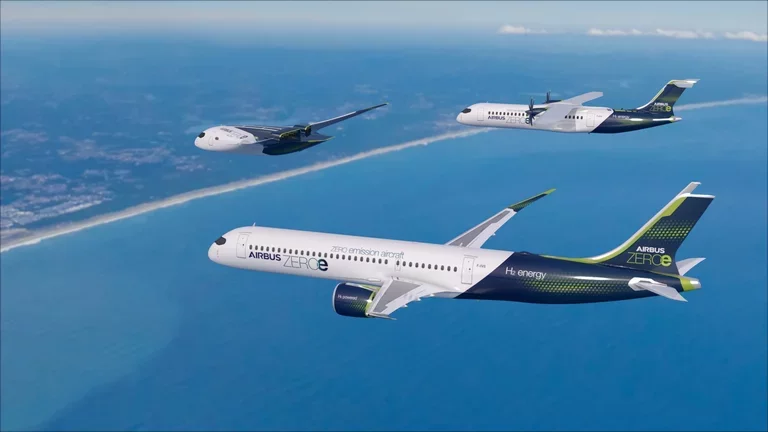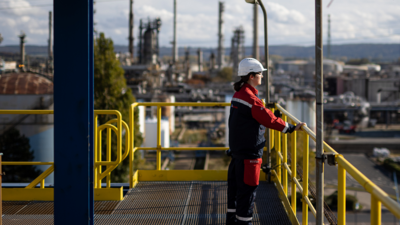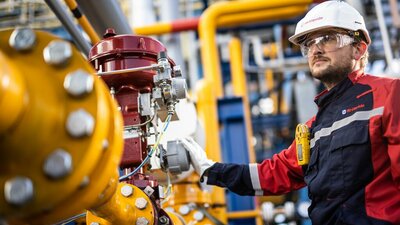Joining forces to build powerful ecosystems
Published on June 14, 2022
3 minutes

In partnering with Airbus to help bring the first zero-emission hydrogen aircraft to the skies by 2035, Air Liquide is deepening a historic partnership where the Group both brings and gains expertise.
Glenn Llewellyn is Vice President, Zero-Emission Aircraft at Airbus. He began his career as an engineer at the company in 2004, working on the A350. He then headed up Airbus’ Research and Technology portfolio dedicated to reducing the climate impact of its products. He is widely recognized as a leader on climate strategy for aviation.

“At Airbus, we believe zero-emission aviation is the future, and the widespread adoption of hydrogen is critical to securing this.
”
Momentum is building around hydrogen, with adoption set to rapidly expand in the coming decades. What role is it going to play in the aviation sector?
At Airbus, we believe zero-emission aviation is the future, and the widespread adoption of hydrogen is critical to securing this. As investment increases across countries and sectors, hydrogen will become a competitive and sustainable fuel source. Our ZEROe concept aircraft enable us to explore a variety of configurations and hydrogen technologies that will shape the development of our future zero-emission aircraft. Our goal is entry-intoservice by 2035, and for that to become a reality, the development of the necessary hydrogen infrastructure at airports also needs to match our pace.
Why did you choose Air Liquide as a partner for the ZEROe project?
A more sustainable future for aviation cannot be achieved alone, so we have been reaching out to partners with complementary expertise. Air Liquide is a long-term partner that has a storied reputation for innovating and delivering, and they have the right hydrogen expertise and technologies needed to help Airbus deliver on our ZEROe ambition, both on the ground and on board. Air Liquide also challenges us in a constructive way, which strengthens our ability to bring a winning solution to market. At their core, Airbus and Air Liquide are strategically aligned and we are both fully committed to building a more sustainable future for aviation.
How is Air Liquide directly contributing to this initiative?
Air Liquide teams are leveraging their expertise and technologies in hydrogen storage, production and distribution to help us design the on-board aircraft technologies for adapting liquid hydrogen to aviation uses. On the ground, they are also playing a key role in the development of hydrogen hubs at airports, working with key operators like Groupe ADP and VINCI Airports to map out the future of hydrogen airport infrastructure.


